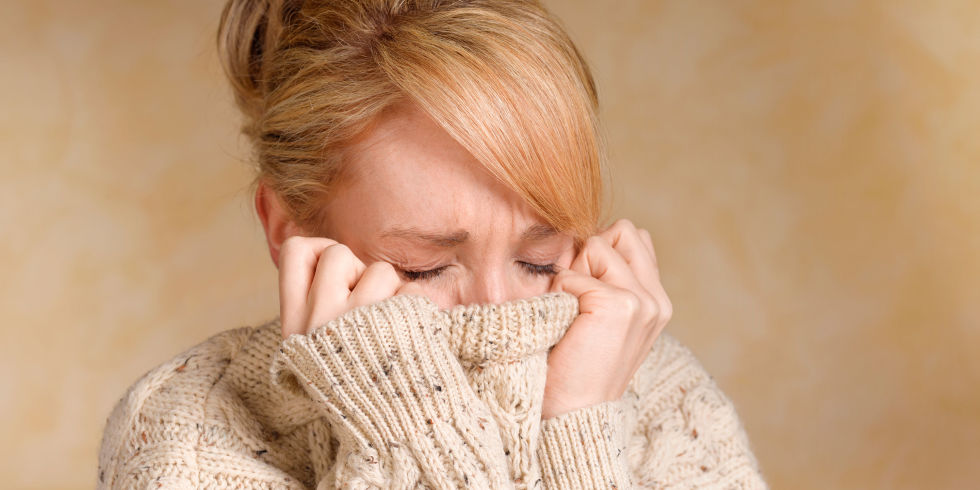Panic attacks can be scary. For some people, they’re an extremely rare occurrence (or they’ll never have one at all), but for anyone who suffers from anxiety, they can experience them regularly. These people will be aware of exactly what can trigger the onset of shortness of breath, a racing heart, and all the other symptoms that go along with one.
The cause of a panic attack can vary from person to person, but according to research carried out on 1,000 anxiety sufferers nationwide by panic disorder specialists bcalm, the most commonly reported trigger is being in a crowded room. More than 35% of the study’s participants reported that this feeling of claustrophobia was most likely to cause them to panic.
And Head of Information at Mind, Stephen Buckley, shed a bit more light on why this could be: ‘[Panic attacks] can be a result of being exposed to something we have a phobia of like being in a crowded place, feeling trapped or claustrophobic, or the notion of public speaking.’
Because claustrophobia is a common fear, this is likely why it ranked so highly as one of the triggers.
‘Panic attacks often occur when you’re feeling anxious, and are typically an exaggeration of the body’s normal response to fear,’ Buckley told Cosmopolitan UK. ‘Everyone is different and what causes panic attacks will vary from person to person but for some people particular places, situations or activities might trigger one.’
According to bcalm’s research, young people are most prone to experiencing them. The study found that 18-24 year olds are 33% more likely than the over-55s to have a panic attack in certain scenarios, like driving. People aged between 25-34 are twice as likely as those older than them to experience a panic attack on a flight.
‘Panic attacks can be a scary experience, particularly if you’ve never had one before or if you don’t know what’s happening,’ Stephen Buckley said. ‘Having a panic attack is associated with physical symptoms like dizziness, nausea, rapid breathing, chest pains and sweating thought to be caused by a surge in adrenalin.
‘People can feel very panicked and unwell, and even as though the world is about to end or they are going to die. No matter how dreadful they seem, they tend to be over in a matter of minutes (usually between five and 20), and are surprisingly common. Panic attacks can happen in the day or night and you may just have one, or you might have them regularly,’ the expert explained.
But according to Buckley, if you’re prone to panic attacks there are ways you can reduce their likelihood of occurring. ‘Regular exercise, a healthy diet, relaxation and breathing techniques can all help prevent panic attacks,’ he said.
‘If you do experience a panic attack, try to stay calm and regulate your breathing. Lots of people find it helpful to move to a quiet space or get outside, if possible. If panic attacks are becoming more regular, lasting longer, or you find panic attacks or anxiety are generally impacting on your day-to-day life, it’s important to visit your GP.’












